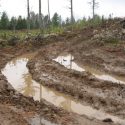Study: Put a price tag on environmental services
The pressing issues of an increasingly strained global environment require a broad societal response – including the systematic assignment of monetary value to the services nature provides such as water purification and climate regulation, according to an assessment of the findings of a study of the health of the world’s ecosystems.
Summarizing the priorities of the Millennium Ecosystem Assessment in this week’s (Oct. 13, 2006) edition of the journal Science, a group of leading environmental scientists call for a broad research agenda that, if implemented, would bring the monetary costs of environmental degradation to the forefront of public policy discussion.
In addition, the researchers call for the development of easily understandable environmental indicators, similar to such economic measures as gross national product, and the reordering of research priorities to better account for the kind of interdisciplinary research required to address key environmental problems.
The Millennium Ecosystem Assessment, a recent inventory of global ecosystems and their contribution to human development, was designed to meet the needs of decision-makers for scientific information, says Stephen R. Carpenter, the lead author of the new Science article. However, routinely and effectively communicating the status of the environment as well as the cost of environmental degradation, and identifying gaps in the environmental research portfolio, remain as key issues, he says.
“We have these indicators like gross national product to estimate the value of goods and services produced in an economy,” Carpenter explains. “We don’t really have a state of the environment indicator. We really need those kinds of measures, something that enables us to take the temperature of the environment.”
The need, the new report asserts, is acute as science has no way to predict abrupt, catastrophic changes to ecosystems resulting from human activities: “We lack the ability to predict thresholds at which such changes occur, whether or not a change may be reversible, and how individuals and societies will respond,” Carpenter and his colleagues write in the Science analysis.
Underpinning a broad indicator of world ecosystem health is the idea that the environment provides a suite of services that have economic value. Those services – filtering of air by forest ecosystems, purification of water by wetlands and value added to crops through soil, for example – are provided for free. But what are the costs of maintaining or replacing such lost services, which are critical to the economies that extract them?
“The continued supply of our surface economy – the things we pay for – depends on a host of things we don’t pay for, things that nature provides for free,” Carpenter explains. “That kind of market valuation is critical because the costs and benefits of environmental services are hidden. If they weren’t, we could make better policy decisions.”
The development of accurate, easily understandable environmental indicators, and methods for assigning value to the economic services provided by nature, says Carpenter, will depend largely on new interdisciplinary research efforts.
“We need a new research initiative to address critical information gaps raised as a result of this assessment. It calls for a reorganization of the research process because everything that is missing is interdisciplinary. That’s what falls between the cracks.”
The problem, frequently, arises in traditional research settings such as universities. Hiring the talent to address the interdisciplinary research needs raised by the Millennium Ecosystem Assessment is difficult or impossible because of tenure policies that make it hard for researchers to work across traditional disciplines.
“We might have to tenure people in areas like environmental economics or social-ecological policy assessment,” says Carpenter. “But the basic research toward developing indicators that are easily understandable to the public and decision makers is key.”
Tags: environment, research



